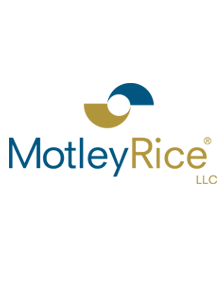
Are U.S. companies outsourcing fraud? | Causes, Not Just Cases®
by: Motley Rice
A colleague of mine often says that the only limit to fraud is man's imagination. Fraud, especially the kind that is hard to detect, is not limited by a certain set of parameters or contained by borders.
Attorneys striving to protect shareholders’ interests are well aware of this, and a study that Ernst & Young recently released presents some hard numbers to support the phenomenon. The new study, which surveyed 3,000 board members, managers and their teams in Europe, the Middle East, India and Africa (EMIA), shows that U.S. companies are exposed to a heightened risk of fraud and financial manipulation in their EMIA operations.
One in five employees surveyed was aware of financial manipulation in his/her own company in the last 12 months. Of those asked, 42 percent of board directors and senior managers said that sales or costs had been manipulated at their companies.
The study also found that 38 percent of all respondents believe companies within their jurisdictions overstate their financial performances, and 57 percent believe bribery and corruption are widespread in this country.
If these statistics are not sobering enough, the study suggests that fraud is on rise. We may not be at the floor, but it appears we have not yet hit the ceiling.
The findings have serious implications for shareholders of public companies. The prevailing wisdom on investing suggests that a diversified portfolio is a sound approach. If so, there is no easy way to avoid investing in companies that have international operations. Large U.S. companies, a staple of many diversified portfolios, increasingly rely on international sales for their revenues. For example, anywhere from 40 to 50 percent of revenues for firms in the S&P 500 come from overseas operations.
The study concludes with six steps for business leaders to take to shore up their companies’ operations. The first step is for companies to own the problem. “In businesses where the risks of fraud, bribery and corruption are properly acknowledged, compliance is not seen as a ‘tick-box’ exercise. In these businesses, management owns the problem, and boards challenge management to ensure that they are prioritizing risk and dealing with issues effectively.” I could not agree more.
The study goes on to list the other steps, including dealing with the issues—make compliance relevant, communicate the risks, communicate the benefits, focus resources, ask questions and demand answers. I have seen far too often, through my work with Motley Rice’s U.S. and foreign institutional investor clients and through the firm’s fraud monitoring program, the impact that not following these steps can have on corporations and their shareholders.
Unfortunately, there are not six easy steps to help investors avoid buying into companies that commit fraud and maintain corporate governance. There is, however, always the option, if not the responsibility, of holding the fraudsters accountable when the truth comes to light. Shareholders are, after all, the owners of the corporation.
Authored by David Abel, a Motley Rice attorney from 2010 to 2016.